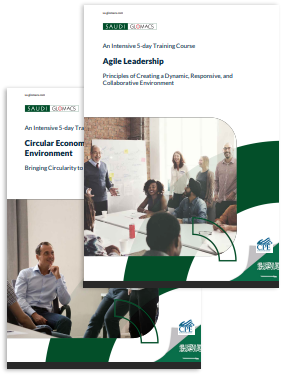An Interactive 5-Day Training Course
Operational Excellence in Crisis Management and Contingency Planning
Strategies for Resilient Operations: Crisis Management and
Contingency Planning
Course Overview
In today's rapidly changing world, organizations face a wide array of potential crises, ranging from natural disasters to cyber-attacks and pandemics.
During a crisis, effective leadership and decision-making are paramount. This training course provides participants with the tools and strategies to lead confidently and decisively in high-pressure situations. By understanding crisis management frameworks and developing response plans, individuals and teams can navigate crises with agility and minimize negative consequences.
Contingency planning is essential for maintaining business continuity during crises. By identifying critical business functions and dependencies, organizations can prioritize resources and efforts to ensure the continuity of operations. This training course teaches participants how to develop robust contingency plans, including communication strategies and supply chain resilience measures, to minimize disruptions and preserve business continuity.
Post-crisis evaluation and continuous improvement are vital aspects of effective crisis management. By conducting thorough post-mortems and lessons learned sessions, organizations can identify areas for improvement and implement corrective actions to strengthen their crisis management capabilities.
Operational Excellence in Crisis Management and Contingency Planning is essential for organizations seeking to thrive in an unpredictable environment. By investing in the knowledge and skills necessary to anticipate, prepare for, and respond effectively to crises, organizations can minimize disruptions, protect their assets and stakeholders, and maintain a competitive edge in today's dynamic business landscape.
This GLOMACS Operational Excellence in Crisis Management and Contingency Planning training course will feature:
- Exercising leadership under emergency and crisis situations
- Assessing, prioritizing risks and threats before, during, and after a crisis
- Making decisions quickly and efficiently and knowing when and how to involve others and to delegate effectively
- Communicating and collaborating with legal and government authorities, media, and other agencies and organisations
- Conducting emergency and crisis management operations
Training Outline
DAY 1: Understanding Crisis Management
- Defining crisis and its implications for organizations.
- Introduction to crisis management frameworks.
- Understanding the phases of crisis management: Preparedness, Response, Recovery, and Mitigation.
- Identifying potential crises and assessing organizational vulnerabilities.
- Conducting risk assessments and scenario planning exercises.
DAY 2: Developing Contingency Plans
- Components of a comprehensive contingency plan.
- Roles and responsibilities within a contingency planning team.
- Conducting a BIA to prioritize critical business functions.
- Identifying dependencies and interdependencies.
- Designing response strategies for various crisis scenarios.
- Creating communication plans and escalation procedures.
DAY 3: Implementing Contingency Plans
- Types of contingency plan exercises.
- Conducting drills to validate plan effectiveness.
- Principles of effective crisis communication.
- Crafting messages for different stakeholders and media channels.
- Assessing and strengthening supply chain resilience.
- Collaborating with suppliers and partners for continuity.
DAY 4: Leading Through Crisis
- Characteristics of effective crisis leaders.
- Leading with empathy and decisiveness.
- Recognizing and addressing stressors during crises.
- Implementing strategies for self-care and resilience.
- Techniques for making sound decisions in high-pressure situations.
- Avoiding common decision-making pitfalls
DAY 5: Continuous Improvement and Adaptation
- Defining crisis and its implications for organizations.
- Introduction to crisis management frameworks.
- Understanding the phases of crisis management: Preparedness, Response, Recovery, and Mitigation.
- Identifying potential crises and assessing organizational vulnerabilities.
- Conducting risk assessments and scenario planning exercises.
Certificates
- On successful completion of this training course, GLOMACS Certificate will be awarded to the delegates
- Continuing Professional Education credits (CPE) : In accordance with the standards of the National Registry of CPE Sponsor, one CPE credit is granted per 50 minutes of attendance
Accreditation

GLOMACS is registered with NASBA as a sponsor of Continuing Professional Education (CPE) on the National Registry of CPE Sponsors. NASBA have final authority on the acceptance of individual courses for CPE credit. Complaints regarding registered sponsors may be submitted to the National Registry of CPE Sponsors through its website: www.learningmarket.org.
All Training Seminars delivered by GLOMACS by default are eligible for CPE Credit.


About Saudi Glomacs
At Saudi GLOMACS, we specialize in delivering world-class training courses in Saudi Arabia and across various international locations. Our training courses are tailored to meet the unique demands of Saudi Vision 2030 and the Human Capability Development Program, focusing on empowering Saudi citizens and enhancing workforce skills. We offer diverse courses spanning leadership, management, engineering, and technical disciplines to cultivate expertise and drive professional growth. Our flexible learning options—whether in-person, online, or in-house—ensure accessibility and convenience for individuals and organizations alike.
With over 30+ years of experience through the GLOMACS global network, we are committed to delivering innovative, results-driven training solutions. Our expert instructors combine industry knowledge with dynamic teaching methods, fostering practical skill development and long-term career success. By choosing Saudi GLOMACS, you're investing in personal excellence and contributing to the Kingdom’s sustainable economic growth and vision-driven transformation.
What do you need to learn next?
Check our list of courses or let us customize a course for you.
View courses


